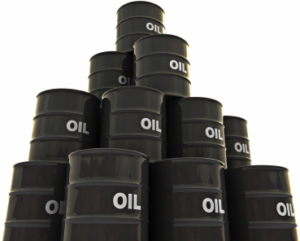Special topics
 Whether by design or happenstance, Ghana’s petroleum price deregulation — which kicked in in July — appears to have been perfectly timed: crude oil prices have been at an all-year low and prices at the pump keep plummeting by the minute.
Whether by design or happenstance, Ghana’s petroleum price deregulation — which kicked in in July — appears to have been perfectly timed: crude oil prices have been at an all-year low and prices at the pump keep plummeting by the minute.
Aside from outstanding arrears owed to BDCs, no more subsidies or forex losses are piling up on government; and the country is being held up across Africa as a good example of how to undertake deregulation.
In Nigeria, for example, where the Buhari government is seeking an end to subsidies that have piled up to about US$40billion in debt, Ghana’s decade-long pursuit of downstream sector deregulation is often hailed.
But Vice President Kwesi Amissah-Arthur believes that the nation cannot behave like a secondary schoolmate of his, who emptied his store of food early on in the school term only to end up begging friends for food later.
Just as prices of crude have fallen beyond expectation, he said, they could begin to rise in about a year or two; and so measures must be adopted that will not force government to reverse back to the burdensome situation of doling out subsidies.
“We have benefitted from incredibly low prices, and I know that very soon prices are bound to go up, so we need to strategise even now: what to do about the price to insure against significant increases in the medium term,” the Vice President said at the Ghana International Petroleum Conference in Accra last Friday.
“We need to do something; we shouldn’t behave like my friend — ‘Atwa naa gbo’ — living for today, benefitting from the low prices and not preparing ourselves for the inevitable,” he said.
Reacting to the Vice President’s concern in an interview with the B&FT, Moses Asaga — CEO of the National Petroleum Authority (NPA), indicated that his outfit has measures in place to deal with a price hike situation.
“The NPA anticipated this while we were doing the deregulation. So as part of the price build-up we have set up what we call the price stabilisation margin, which will accrue into the Bank of Ghana account,” he said.
“This will be kept until there is a rainy day; we are capping around US$80 per barrel; immediately prices start to inch above US$80 per barrel, then we will move in and trigger the price stabilisation margin,” he assured.
“We have also been doing our averages, and we have empirical evidence that shows the maximum prices went up to in the last five years was around US$110 per barrel or thereabout. Therefore, we know that an average price of US$80 is a reasonable benchmark for us to target our price stabilisation margin.”
From US$110 a year ago, crude prices have tumbled to below US$50 currently — with a one-year forecast of just about the same figure for most market watchers.
At the pump, prices have reduced by some 30% since July this year when the NPA kick started price deregulation.
The NPA has been patting itself on the back for timing the price deregulation well to coincide with the fall in crude oil prices.
“Timing is very important when you are going to do regulation of price, because you should not do deregulation of price when international FOB prices for crude oil is very high, when Platts and Argus prices are very high, because then the first deregulated price that you do will shoot up a certain percentage,” said Moses Asaga.
“So we took cognisance of that; we were monitoring the international market and making our own forecast to see whether we could get average prices that would last from six months to one year. The period did come when prices went as low as US$60, and we thought that was the right time to do deregulation.”
Source: http://thebftonline.com/business/economy/15971/price-hikes-could-test-deregulation-will-ghana-be-ready.html#sthash.iNnMsaqH.dpuf